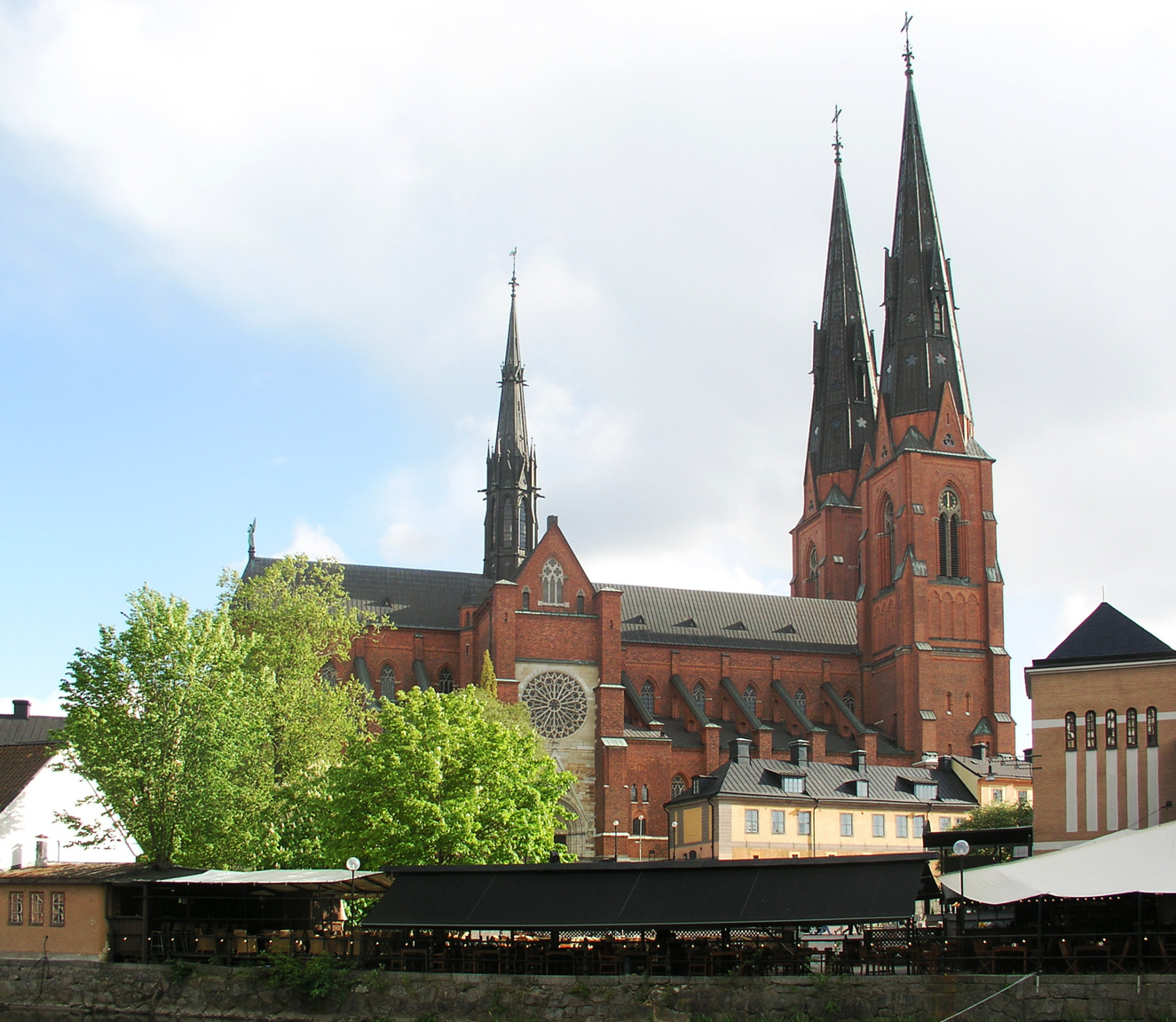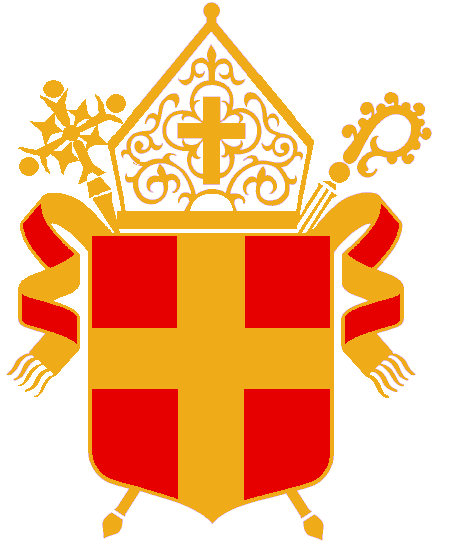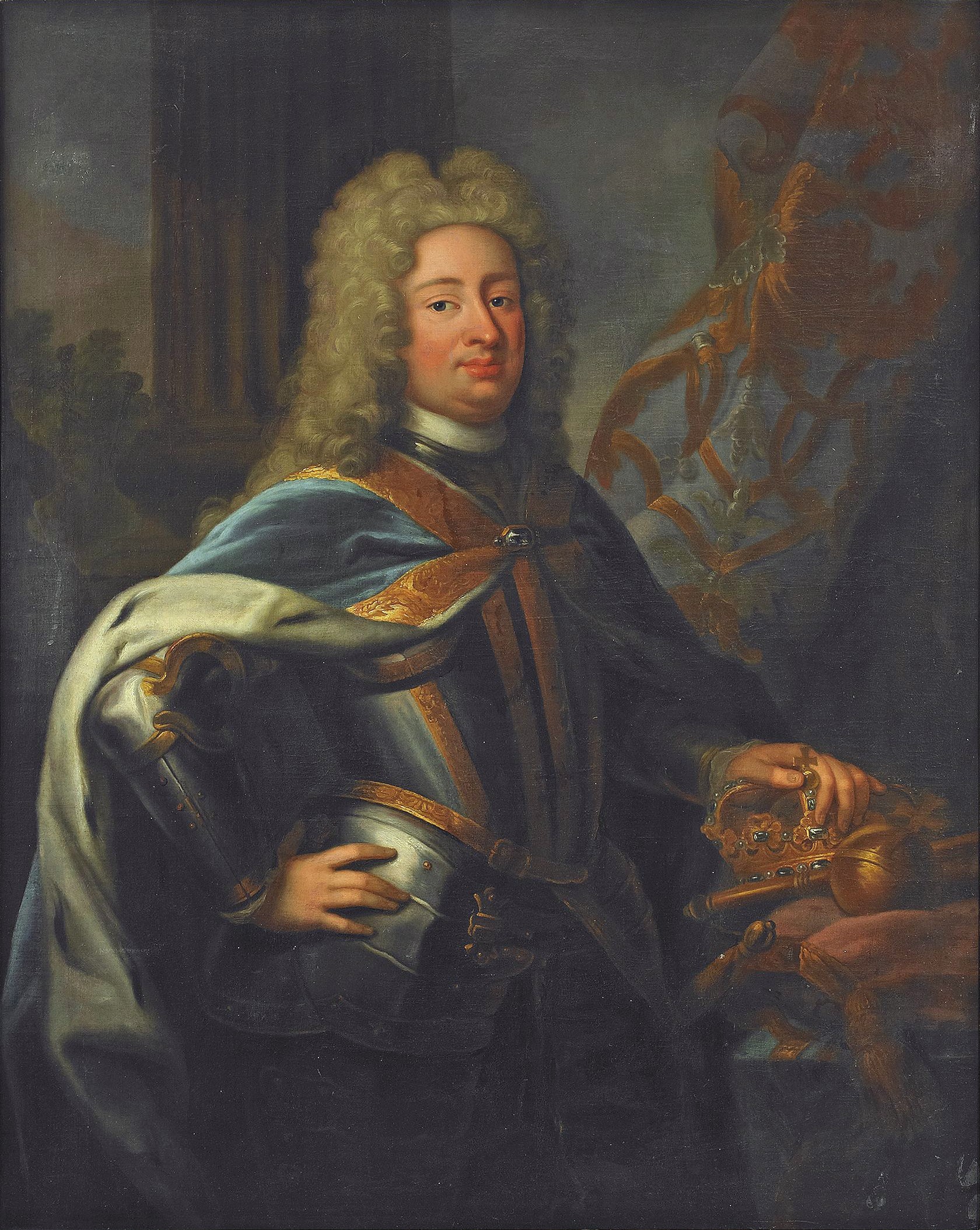|
Erik Benzelius The Younger
Erik Benzelius the younger (27 January 1675 in Uppsala – 23 September 1743) was a priest, theologian, librarian, Bishop of Linköping, 1731–1742 and Archbishop of Uppsala, Sweden, 1742–1743. He was a highly learned man and one of Sweden's important Age of Enlightenment, Enlightenment figures. Biography He was the son of Erik Benzelius the Elder, Erik Benzelius the elder. The elder Erik also held the office of archbishop, he was a most learned man who had studied in universities around Europe and he was also a professor of theology at the University of Uppsala. Like his father, the young Erik first studied at Uppsala and in 1697 with a Royal scholarship undertook a three year long educational journey through Europe. The academic world had grown in importance as had the sciences, and many notable people were found at the universities in Europe. Erik met among others Gottfried Leibniz, Leibniz and Nicolas Malebranche, Malebranche. He also spent a great deal of time studying ... [...More Info...] [...Related Items...] OR: [Wikipedia] [Google] [Baidu] |
Archbishop Of Uppsala
The Archbishop of Uppsala (spelled Upsala until the early 20th century) has been the primate of Sweden in an unbroken succession since 1164, first during the Catholic era, and from the 1530s and onward under the Lutheran church. Historical overview There have been bishops in Uppsala from the time of Swedish King Ingold the Elder in the 11th century. They were governed by the archbishop of Hamburg-Bremen until Uppsala was made an archbishopric in 1164. The archbishop in Lund (which at that time belonged to Denmark) was declared primate of Sweden, meaning it was his right to select and ordain the Uppsala archbishop by handing him the pallium. To gain independence, Folke Johansson Ängel in 1274 went to Rome and was ordained directly by the pope. This practice was increasing, so that no Uppsala archbishop was in Lund after Olov Björnsson, in 1318. In 1457, the archbishop Jöns Bengtsson (Oxenstierna) was allowed by the pope to declare himself primate of Sweden. Uppsala (t ... [...More Info...] [...Related Items...] OR: [Wikipedia] [Google] [Baidu] |
Erik Benzelius The Elder
Erik Benzelius (the Elder) (16 December 1632 – 17 February 1709) was a Swedish theologian and Archbishop of Uppsala. Benzelius was born at the Bentseby farm in the parish of Luleå in northern Sweden, son of the farmer and lay assessor (''nämndeman'') Henrik Jakobsson. He took a family name derived from his birthplace, rather than using the patronymic as was common in the Swedish peasantry. He was raised by a relative who was a merchant in Uppsala, and studied at Uppsala University, where he completed his '' filosofie magister'' degree in 1661. He was hired by Magnus Gabriel De la Gardie as a tutor for his sons in 1660 and accompanied one of them on a foreign journey stretching from 1663 to 1665, visiting Copenhagen, the most important universities of Germany, and continuing to Paris, London, Oxford, and Leiden Leiden ( ; ; in English language, English and Archaism, archaic Dutch language, Dutch also Leyden) is a List of cities in the Netherlands by province, city and L ... [...More Info...] [...Related Items...] OR: [Wikipedia] [Google] [Baidu] |
People From Uppsala
The term "the people" refers to the public or common mass of people of a polity. As such it is a concept of human rights law, international law as well as constitutional law, particularly used for claims of popular sovereignty. In contrast, a people is any plurality of persons considered as a whole. Used in politics and law, the term "a people" refers to the collective or community of an ethnic group or nation. Concepts Legal Chapter One, Article One of the Charter of the United Nations states that "peoples" have the right to self-determination. Though the mere status as peoples and the right to self-determination, as for example in the case of Indigenous peoples (''peoples'', as in all groups of indigenous people, not merely all indigenous persons as in ''indigenous people''), does not automatically provide for independent sovereignty and therefore secession. Indeed, judge Ivor Jennings identified the inherent problems in the right of "peoples" to self-determination, as i ... [...More Info...] [...Related Items...] OR: [Wikipedia] [Google] [Baidu] |
1743 Deaths
Events January–March * January 1 – The Verendrye brothers, probably Louis-Joseph and François de La VĂ©rendrye, become the first white people to see the Rocky Mountains from the eastern side (the Spanish conquistadors had seen the Rockies from the west side). * January 8 – King Augustus III of Poland, acting in his capacity as Elector of Saxony, signs an agreement with Austria, pledging help in war in return for part of Silesia to be conveyed to Saxony. * January 12 ** The Verendryes, and two members of the Mandan Indian tribe, reach the foot of the mountains, near the site of what is now Helena, Montana. ** An earthquake strikes the Philippines * January 16 – Cardinal AndrĂ©-Hercule de Fleury turns his effects over to King Louis XV of France, 13 days before his death on January 29. * January 23 – With mediation by France, Sweden and Russia begin peace negotiations at Ă…bo (Turku) to end the Russo-Swedish War. By August 17, Swed ... [...More Info...] [...Related Items...] OR: [Wikipedia] [Google] [Baidu] |
1675 Births
Events January–March * January 5 – Franco-Dutch War – Battle of Turckheim: The French defeat Austria and Brandenburg. * January 29 – John Sassamon, an English-educated Native American Christian, dies at Assawampsett Pond, an event which will trigger a year-long war between the English American colonists of New England, and the Algonquian Native American tribes. * February 4 – The Italian opera '' La divisione del mondo'', by Giovanni Legrenzi, is performed for the first time, premiering in Venice at the Teatro San Luca. The new opera, telling the story of the "division of the world" after the battle between the Gods of Olympus and the Titans, becomes known for its elaborate and expensive sets, machinery, and special effects and is revived 325 years later in the year 2000. * February 6 – Nicolò Sagredo is elected as the new Doge of Venice and leader of the Venetian Republic, replacing Domenico II Contarini, who had died 10 d ... [...More Info...] [...Related Items...] OR: [Wikipedia] [Google] [Baidu] |
List Of Archbishops Of Uppsala
This article lists the archbishops of Uppsala. Before the Reformation * 1164–1185: Stefan * 1185–1187: Johannes * 1187–1197: Petrus * 1198–1206: Olov Lambatunga * 1207–1219: Valerius * 1219 (1224)–1234: Olov Basatömer * 1236–1255: Jarler * 1255–1267: Lars * 1274–1277: Folke Johansson Ängel * 1278–1281: Jakob Israelsson * 1281–1284: Johan Odulfsson (not ordained) * 1285–1289: Magnus Bosson * 1289–1291: Johan * 1292–1305: Nils Allesson * 1308–1314: Nils Kettilsson * 1315–1332: Olov Björnsson * 1332–1341: Petrus Filipsson * 1341–1351: Heming Nilsson * 1351–1366: Petrus Torkilsson * 1366–1383: Birger Gregersson * 1383–1408: Henrik Karlsson * 1408–1421: Jöns Gerekesson (''Johannes Gerechini'') * 1421–1432: Johan Håkansson * 1432–1438: Olov Larsson (''Olaus Laurentii'') * 1433–1434: Arnold of Bergen (not ordained) * 1438–1448: Nicolaus Ragvaldi * 1448–1467: Jöns Bengtsson Oxenstierna * 1468–1469: Tor ... [...More Info...] [...Related Items...] OR: [Wikipedia] [Google] [Baidu] |
Royal Swedish Academy Of Sciences
The Royal Swedish Academy of Sciences () is one of the Swedish Royal Academies, royal academies of Sweden. Founded on 2 June 1739, it is an independent, non-governmental scientific organization that takes special responsibility for promoting natural sciences and mathematics and strengthening their influence in society, whilst endeavouring to promote the exchange of ideas between various disciplines. The goals of the academy are: * To be a forum where researchers meet across subject boundaries, * To offer a unique environment for research, * To provide support to younger researchers, * To reward outstanding research efforts, * To communicate internationally among scientists, * To advance the case for science within society and to influence research policy priorities * To stimulate interest in mathematics and science in school, and * To disseminate and popularize scientific information in various forms. Every year, the academy awards the Nobel Prizes in Nobel Prize in Physics, phy ... [...More Info...] [...Related Items...] OR: [Wikipedia] [Google] [Baidu] |
Hedvig Taube
Hedvig Ulrika Taube (31 October 1714 – 11 February 1744), also Countess von Hessenstein, was a Swedish courtier and countess, a countess of the Holy Roman Empire, and royal mistress to king Frederick I of Sweden from 1731 to 1744. She and Sophie Hagman are the only two official royal mistresses in Swedish history. Early life Hedvig Taube was one of nine children of Count Edvard Didrik Taube (1681–1751) and Christina Maria Falkenberg (1686–1753). Her sister, Catherine Charlotte, was to marry the brother of scientist Countess Eva Ekeblad, who was also the aunt of the renowned Axel von Fersen the Younger. In 1716, the future king Frederick became one of the godparents to her sister Christina Beata. During the 1720s, her father was nearly ruined and placed in heavy debt because of gambling and bad business: in 1730, the family had been forced to change their city residence to a cheaper one.Jacobson, Esther, Hedvig Taube: en bok om en svensk kunglig mätress, Wahlström & ... [...More Info...] [...Related Items...] OR: [Wikipedia] [Google] [Baidu] |
Frederick I Of Sweden
Frederick I (; 28 April 1676 – 5 April 1751) was List of Swedish monarchs, King of Sweden from 1720 until his death, having been prince consort of Sweden from 1718 to 1720, and was also Landgrave of Landgraviate of Hesse-Kassel, Hesse-Kassel from 1730. He ascended the throne following the death of his brother-in-law absolute monarchy, absolutist Charles XII in the Great Northern War, and the abdication of his wife, Charles's sister and successor Ulrika Eleonora, Queen of Sweden, Ulrika Eleonora, after she had to relinquish most powers to the Riksdag of the Estates and thus chose to abdicate. His powerless reign and lack of legitimate heirs of his own saw his family's elimination from the line of succession after the parliamentary government dominated by pro-Revanchism, revanchist Hat Party politicians ventured into Hats' Russian War, a war with Russia, which ended in defeat and the Russian tsarina Elizabeth of Russia, Elizabeth getting Adolf Frederick of Sweden, Adolf Frederick o ... [...More Info...] [...Related Items...] OR: [Wikipedia] [Google] [Baidu] |
Riksdag Of The Estates
Riksdag of the Estates (; informally ) was the name used for the Estates of Sweden when they were assembled. Until its dissolution in 1866, the institution was the highest authority in Sweden next to the King. It was a Diet made up of the Four Estates, which historically were the lines of division in Swedish society: * Nobility * Clergy * Burghers * Peasants The inclusion of a fourth estate, ''Bondeståndet'', is a peculiarity of the Swedish realm, with few parallels in Europe. The English word ''peasant'' is however an inexact translation, as it did not include the entire peasantry, as it is usually defined in an English context. It did not include unlanded or semi-landed groups such as crofters, lodgers and seasonal labourers and of the three categories of Swedish ''bönder'', that is peasants, it included only two. Those were the ''skattebönder'' ("tax peasants"), yeomen who owned their own land and were taxed, as well as the ''kronobönder'' ("Crown farmers" or "farmers ... [...More Info...] [...Related Items...] OR: [Wikipedia] [Google] [Baidu] |
Johan Kemper
Johan Kemper (1670–1716), formerly Moshe ben Aharon Ha-Kohen of Kraków or Moses Aaron, baptized Johann Christian Jacob; was a Polish Sabbatean Jew who converted from Judaism to Lutheran Christianity.Wolfson, Elliot R.Messianism in the Christian Kabbala of Johann Kemper", ''The Journal of Scriptural Reasoning'', Volume 1, No. 1, August 2001 (also appears in Goldish et al. (2001)) His conversion was motivated by his studies in Kabbalah and his disappointment following the failure of a prophecy spread by the Polish Sabbatean prophet Zadok of Grodno, which predicted that Sabbatai Zevi would return in the year 1695/6.Dole, George, F.Philosemitism in the Seventeenth Century,''Studia Swedenborgiana'', Volume 7, No. 1, December 1990 It is unclear whether he continued to observe Jewish practices after his conversion. Between 1696 and 1698 he worked for the Hebraist Johann Christoph Wagenseil (1633-1705), for whom he composed a Yiddish Purim play. In March 1701 he was employed as a t ... [...More Info...] [...Related Items...] OR: [Wikipedia] [Google] [Baidu] |
Emanuel Swedenborg
Emanuel Swedenborg (; ; born Emanuel Swedberg; (29 January 168829 March 1772) was a Swedish polymath; scientist, engineer, astronomer, anatomist, Christian theologian, philosopher, and mysticism, mystic. He became best known for his book on the afterlife, Heaven and Hell (Swedenborg), ''Heaven and Hell'' (1758). Swedenborg had a prolific career as an inventor and scientist. In 1741, at 53, he entered into a Spirituality, spiritual phase in which he began to experience dreams and visions, notably on Easter Weekend, on 6 April 1744. His experiences culminated in a "spiritual awakening" in which he received a revelation that Jesus Christ had appointed him to write ''The Heavenly Doctrine'' to reform Christianity. According to ''The Heavenly Doctrine'', the Lord had opened Swedenborg's spiritual eyes so that from then on, he could freely visit heaven and hell to converse with angels, demons, and other spirits and that the Last Judgment had already occurred in 1757, the year before th ... [...More Info...] [...Related Items...] OR: [Wikipedia] [Google] [Baidu] |







